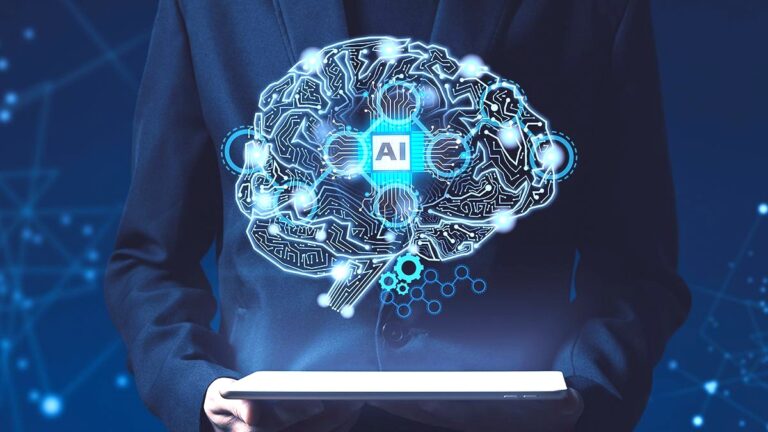
Neuralink: Bridging Minds and Machines - Exploring the Ethical Implications and Potential of Brain-Computer Interface Technology
Billionaire entrepreneur Elon Musk, renowned for his ventures in technology and space exploration, has recently announced a significant milestone in the field of neuroscience. His company Neuralink, founded in 2016, has successfully implanted its brain-computer interface (BCI) into a human subject. This groundbreaking achievement brings to light both the immense potential and ethical considerations surrounding the use of such technology.
NeuraLink
The Neuralink device, about the size of a large coin, is designed for implantation in the skull, facilitating direct communication between the brain and external devices. This innovative technology involves ultra-thin wires penetrating the brain to establish a brain-computer interface, allowing for the detection and interpretation of neural signals. Musk’s vision for Neuralink encompasses a range of applications, from enabling individuals to control their phones or computers merely by thought to potentially aiding in the treatment of neurological disorders.
Brain Computer Interface (BCI)
The Brain-Computer Interface (BCI) technology utilized by Neuralink facilitates direct communication between the brain and external devices without relying on traditional neuromuscular pathways. Through sensors that detect brain activity, individuals can control devices and interact with the world around them using their thoughts alone.
With over 1,000 superthin, flexible electrodes, Neuralink’s wireless device interfaces with the cerebral cortex, registering thoughts related to motion. This breakthrough technology holds promise for individuals with disabilities, as it could potentially restore motor function and communication abilities.
Applications of Brain Computer Interface (BCI)
The applications of Brain-Computer Interface extend far beyond mere convenience, offering transformative possibilities in various fields:
- Medical Treatments: BCIs could revolutionize the treatment of neurological disorders such as epilepsy, Parkinson’s disease, and stroke rehabilitation by providing direct access to brain activity for monitoring and therapeutic interventions.
- Assistive Technology: For individuals with paralysis or motor impairments, BCIs offer the prospect of controlling prosthetics, wheelchairs, or robotic limbs through neural signals, restoring independence and quality of life.
- Mental Health Monitoring: Real-time monitoring of brain activity could facilitate the management of mental health conditions like depression or anxiety, leading to more personalized and effective interventions.
- Virtual and Augmented Reality Interaction: BCIs enhance immersive experiences in virtual and augmented reality by enabling users to interact with digital environments using their thoughts, opening up new possibilities for entertainment and education.
Ethical Concerns around Neuralink:
While the potential benefits of Brain-Computer Interface are promising, ethical considerations loom large:
- Privacy Concerns: The ability of BCIs to decode thoughts and emotions raises significant privacy concerns, with the potential for unauthorized access to sensitive neural data leading to breaches of cognitive privacy.
- Neurosecurity: The risk of BCIs being manipulated for unauthorized control or manipulation of individuals’ thoughts or actions poses a profound ethical challenge, necessitating robust safeguards against misuse.
- Equity and Accessibility: The high cost of BCIs could exacerbate existing social inequalities, creating a “cognitive divide” where only certain socioeconomic groups have access to this transformative technology.
Path Forward:
In light of these ethical considerations, the path forward involves:
- Establishing Ethical Frameworks: Developing clear ethical guidelines that delineate the therapeutic and assistive applications of BCIs while addressing concerns related to privacy, security, and consent.
- Transparency and Informed Consent: Ensuring transparent communication about the capabilities, limitations, and potential risks of BCIs to empower users to make informed decisions about their use.
- Equitable Access: Implementing initiatives to ensure that BCIs are accessible to individuals from diverse backgrounds, particularly those facing physical and mental disabilities, to mitigate the risk of exacerbating social inequalities.
- Education and Awareness: Providing education and training for researchers, healthcare professionals, and the general public to promote ethical practices and foster a deeper understanding of the implications of BCIs on society.
In conclusion, Neuralink’s achievement in implanting its brain-computer interface into a human subject heralds a new era in the integration of technology with the human brain. While offering transformative potential in medical treatments and assistive technologies, the ethical implications of BCIs underscore the importance of careful consideration and proactive measures to ensure responsible development and deployment of this revolutionary technology. Through collaboration between stakeholders and a commitment to ethical principles, the Brain-Computer Interface promises to enhance human capabilities while safeguarding individual autonomy and privacy in an increasingly interconnected world.






